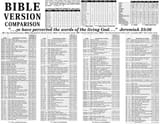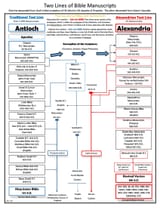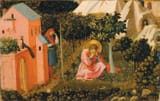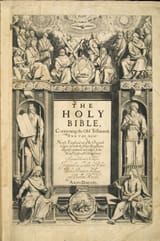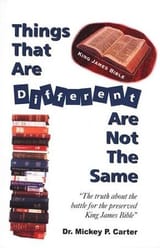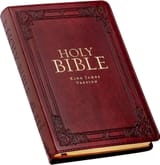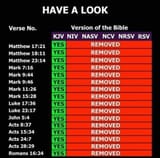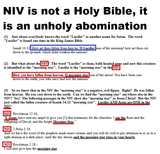>>24480834>However, in several dozen readings Scrivener notes that no printed Greek text corresponds to the English of the Authorized Version, which in these places derives directly from the Vulgate.F.H.A. Scrivener was wrong about this. He refused to recognize the octavo TR editions of Beza, particularly his 1604 edition where some of the KJV readings actually came from.
>For example, at John 10:16, the Authorized Version reads "one fold" (as did the Bishops' Bible, and the 16th-century vernacular versions produced in Geneva), following the Latin Vulgate "unum ovile", whereas Tyndale had agreed more closely with the Greek, "one flocke" (μία ποίμνη).This is a highly trivial example. The word αὐλή is translated as fold or sheepfold in John 10:1 and 10:16, and elsewhere is translated as "palace," "court" and "hall," depending on context. This is simply an accurate rendering of the Greek source text.
Scrivener throughout his writings fetishized the Latin text and the apocrypha, but none of his supposed examples holds water. He was also on the committee that made the 1881 Revised Version, so he had a motivation to undermine the perception of the Authorized version. Not a reliable source, and I don't use or recommend his version of the TR either because it has serious problems.
>The Authorized Version New Testament owes much more to the Vulgate than does the Old Testament;The Geneva Bible and Authorized version were both translated from the Hebrew (and Aramaic in certain passages of Ezra and Daniel). I have seen many attempts to try to denigrate the Authorized version by claiming it used other sources, but in the rare cases where actual alleged examples are provided none of them ever panned out. Also, if these examples actually existed, it would mean the translators lied when they stated that their translation was from the original languages, so something actually substantial should be provided to substantiate this frequently made claim, but I've never seen it.
>What about the ones that aren't, like the aformentioned Antioch Bible?The Antioch Bible is a translation of the Syriac, so not original languages. The "critical text" by contrast is in Greek but it is a corrupted form that was reconstructed in the 19th-21st century, primarily based on Vaticanus and Sinaiticus.
An accurate Bible translation should be based on the continuity of original language manuscripts that we have always had, namely the received text.
>Isn't this just yet another layer of interpretation between the reader and God's truth? I doubt anyone claims that the authors of mere works of commentary are divinely inspired.Sure, but if you are confused about the meaning of some English word they might help. That's why we use dictionaries and other tertiary resources. The KJV translators also included some marginal notes that sometimes become useful. For example one marginal note placed in 1611 next to the word "unicorn" explains that this refers to the rhinocerous.

